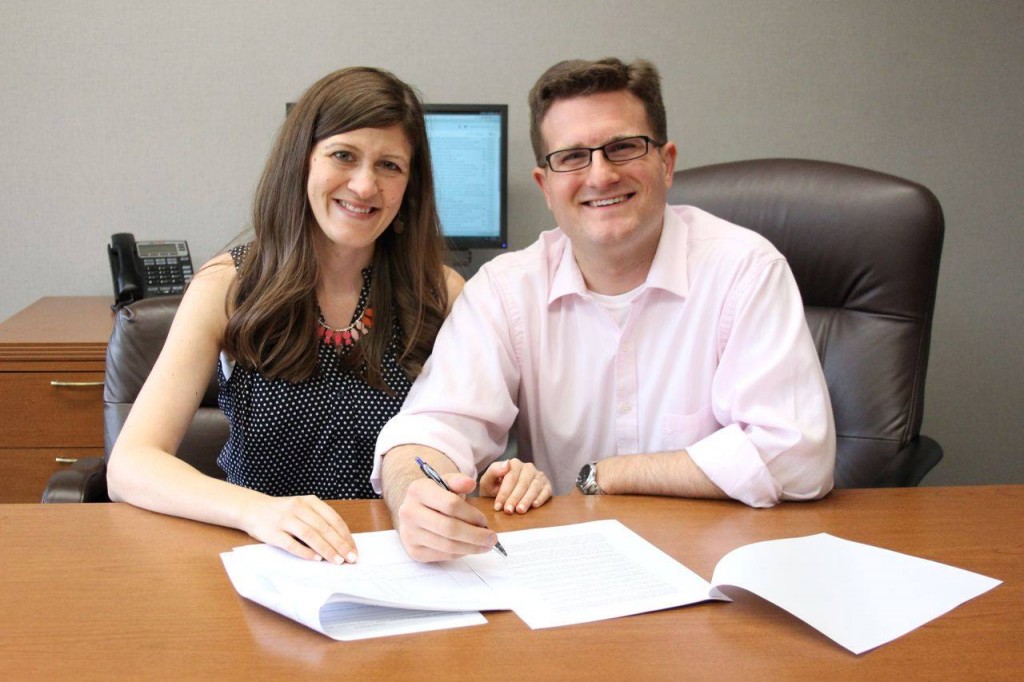Marriage is wonderful. The wedding day is a whirlwind of portraits and the ceremony and the reception and people and it is a ton of fun. You and your spouse should be thinking of the bright, happy and long future you have together.
However, once all of that is over, you should take some time to consider some practical things. Right now, Maria and I are combining our bank accounts (which is more of a pain than you would think) and changing health insurance enrollments. I’m working on one other thing that most couples don’t do, even though they should: our wills.
I understand why new couples don’t want to think about their wills: you’re just getting started in your lives together and the death of your partner is the last thing you want to think about. But it is very important to do, and our man Dave Ramsey agrees. Unless you specify it in a will, your government dictates where your money and possessions go after your death. Those laws don’t always send money where you actually want it to go. Maybe you have a very close friend to whom you would like to leave some money or you want to give money to a sibling but your parents are still alive; neither of those would happen under the government’s default rules.
Before we get too far into this post, a quick disclaimer: this post contains general legal information and not advice specific to any person. I’m not intending to create any attorney-client relationships through this post. If you need legal advice or would like to create a will, you should contact an attorney licensed to practice in your jurisdiction. Also, I will try my best to not slip too much into lawyer-mode legalese in this post. If you have any questions feel free to leave them in the comments and I will do my best to answer them.
The vast majority of wills are pretty simple. Most married couples will want to leave all their property to their spouse and to some alternates in case their spouse is no longer alive. Sometimes, a more detailed plan is needed. Maybe you want to leave your nieces and nephews a small gift and then leave the left over amount to your spouse. Many couples with small children or special needs children want someone to manage the money these children will inherit since they are too young or unable to manage it for themselves.
Getting Started with Your Will
When you and your spouse decide to work on a will, you will want to gather some information first. Many attorneys will provide you with a worksheet to help gather the needed information as part of their estate planning process. Here are some things you will need to gather or decide:
- A list of all your property: including bank accounts, life insurance policies, home, cars, boats, jewelry, and other expensive, unique items. This should also include any businesses you own.
- A list of all your debts: including mortgages, student loans, car loans, etc.
- A list of the names and addresses of your parents, siblings and all your children.
- Who do you want to carry out your wishes in the will? This should be someone trustworthy and financially responsible. Most people name their spouse or someone close in the family, but that is not always the best option as those are the people hurting the most after you pass. It can be a friend and many lawyers do this, too.
- If you have children, who would you want to take care of them if both you and your spouse have passed away? Who would you want to manage their money?
- Where do you want your money and property to go? Do you want a specific amount of money or particular property to go to specific people?
Other Documents
If you hired an attorney to prepare your wills, many lawyers will prepare other documents besides the will. One of these is a power of attorney so that someone can manage your affairs if you are alive, but unable to do so. Another document is a medical power of attorney (or a living will, if your state allows for them; Michigan does not have a living will law) that sets forth your medical care wishes and designates someone to carry out those wishes. You will want to think about what your wishes for medical care are and the people you would like those documents to designate to carry out your plan. Having to make medical decisions is very hard; discussing choices in advance will help lessen that burden. The power of attorney and medical power of attorney are both very important documents and very important things for you to discuss as a couple.
Wills and Estate Planning, Part 2
Since that’s quite a lot to think about, I will end part one of this series here. Some of these conversations are difficult. As you could see from Maria’s Instagram post, there were some tears involved when she and I talked about our own estate plan. Take it easy when discussing these issues and remember that formulating a plan now is much easier than trying to decide what to do in the event of a family emergency.
In part 2, I will give some tips for finding a lawyer in your area, outline the will signing process, share my thoughts on other methods of getting a will, and provide advice about you should do after your will is signed.
Grab a legal pad and I’ll be back next week with more advice.












